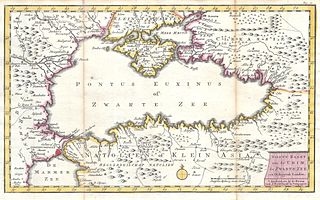What the Columnists Say
Abdülkadir Selvi in Yeni Şafak reports that Turkey is determined to take action in Syria if the PYD expands to the west of the Euphrates, taking control of Jarabulus, but that this does not mean that Turkey is about to go to war. Özgür Mumcu in Cumhuriyet writes that Turkey is dreaming about a military operation that is internally marketed as an operation against PYD, while it is externally marketed as something that supposedly targets ISIS. Orhan Kemal Cengiz in Bugün writes that the question after the election was if Erdoğan was going to interpret the results as a no to the proposed, unlimited powers of the presidency or as a “road accident,” and concludes that it’s now business as usual for the president. Orhan Bursalı in Cumhuriyet writes that it is very difficult for AKP to accept that the party has lost the possibility to form a majority government on its own, and that the party and the “Mighty” – Erdoğan – intends to never relinquish power. Candaş Tolga Işık at the Habere Dikkat news site writes that handing the seat of the speaker of the parliament to AKP as a gift, only because MHP is unable to curb its hatred of HDP, is going to be the undoing of the party.

Turkey’s Crimean Dilemmas and Passivity
By Stephen Blank (vol. 8, no. 4 of the Turkey Analyst)
Given the prominent role that Ankara aspires to have in regional and world affairs what does the Turkish passivity in relation to the developments in the Black Sea region, and specifically regarding the case of Crimea, say about those avowed aspirations? Turkey's inability and unwillingness to stand up to Russian neo-expansionism – something history should have taught Ankara to be extremely wary of – serves to further underline that Turkey's erstwhile reputation for conducting a strong independent foreign policy was never deserved.

Turkey and the Georgia War: a Bungled Stability Initiative
By M. K. Kaya and Svante E. Cornell (vol. 1, no. 12 of the Turkey Analyst)
Like most other states, Turkey was hard pressed to respond to the war in Georgia. For Turkey, the war threatened its position in the Caucasus, as well as its long-term objective of becoming a hub of European energy transportation. Prime Minister Erdogan chose to moment in order to promote a form of Caucasian alliance - a well-intentioned but somewhat surreal proposal in the middle of a raging war. The crisis exposed the government's lack of attention to the Caucasus, and the need for a serious rethink of Turkey's role there
What the Columnists Say
The March 30 municipal elections in Turkey are generally viewed as a resounding victory for Prime Minister Recep Tayyip Erdogan, as a consequential defeat for the movement of Fethullah Gülen and for the opposition that was tacitly allied with the movement. Still, commentators who are opposed to Erdogan point out that his party sustained a sizeable loss compared to the general elections in 2011 that cannot be ignored. They also ask if he is going to be able to govern a country that is as fractured and highly polarized as Turkey has become. The observation is made that every election since 2002 has demonstrated the existence of three, culturally distinct Turkeys, and that the March 30 elections showed that these differences have hardened to a point where the question becomes if the people of Turkey still has the will to live together.
What the Columnists Say
The Turkish parliament’s adoption of a law that subordinates the judiciary to the government is sharply criticized by many columnists. Many are also expressing disappointment over the fact that President Abdullah Gül did not return the internet law to parliament. Mehmet Altan, a former supporter of the AKP, writes that Gül has forfeited his chances to be re-elected by rallying to Prime Minister Erdoğan. Orhan Bursalı in the secularist daily Cumhuriyet meanwhile interprets Gül’s non-veto as a sign that he and Erdoğan have reached an agreement. He notes that the authoritarian laws that are now passed strengthen the prime minister, which he sees as a sign that Erdoğan intends to remain in that position and let Gül keep the presidency. The general expectation outside the pro-government dailies is nonetheless that the end is nearing for the AKP regime. Ergun Babahan, formerly a pro-AKP commentator, warns Erdoğan that what has happened in Ukraine can also take place in Turkey.





